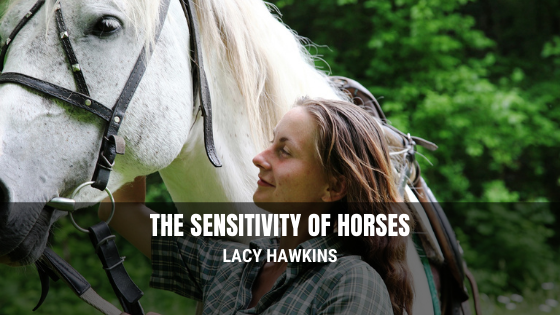As prey animals, horses are keenly aware of their environments and feeling-oriented in their actions. For horses, emotions are information. Their survival depends upon monitoring their surroundings closely and being in continual communication with other members of their group or herd so that they can know when to freeze, flee, fight or return to grazing, drinking, or napping. Horse owners become a part of their horses’ environment and, ultimately, a member of what the horses perceive as the herd. Horses have lived with humans for almost 5500 years; they can sense the fears and apprehension of people. So, owners and riders should manage their emotions and personal energy not to alarm their horses.
Self-awareness is essential for good horsemanship.
The riders of horses must be the initiators of actions if they wish to control their animals. If a person does not possess self-confidence, they will not be possible to lead or direct a horse. For, horses have keen senses of smell and sight, and they can detect nervousness and insecurity. Also, because horses by nature have lived in a social herd, they have keen cognitive abilities. They can easily sense emotions and interpret them as informative communication. They also have a herd mentality. When one of the horses reacts fearfully to something, the entire herd will often respond to this fear by moving from the area. There, they will cautiously watch and listen, returning to their grazing only when they feel safe. So, to keep their horses calm, owners and riders must remain at ease and communicate their assuredness that all is well.
Awareness of the emotional qualities of a horse is necessary.
Perhaps, it is because horses are such emotional animals that women more easily relate to them. In the United States, as of March 2012, almost 91% of horse owners were women. Because horses are always on alert for danger, women’s maternal instincts to calm their offspring are assets when they work with their horses and as they ride. Too often, men try to overpower their horses in their demands for them to behave. Dictatorial behavior works with their dogs, but it only frightens horses and ignites their instinct to break away and run. For horses, emotions are informational; when the owner becomes angry or exasperated with them, horses sense danger in these emotions and obey their instincts to flee. Therefore, owners and riders must practice being calm, reassuring, and positive in their approach to horses to strengthen their relationships with horses.
